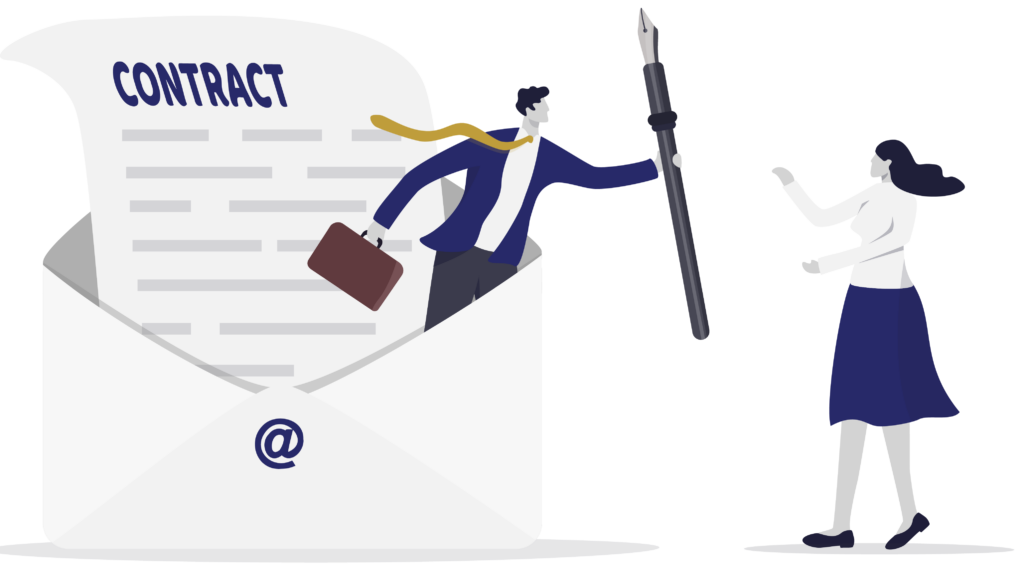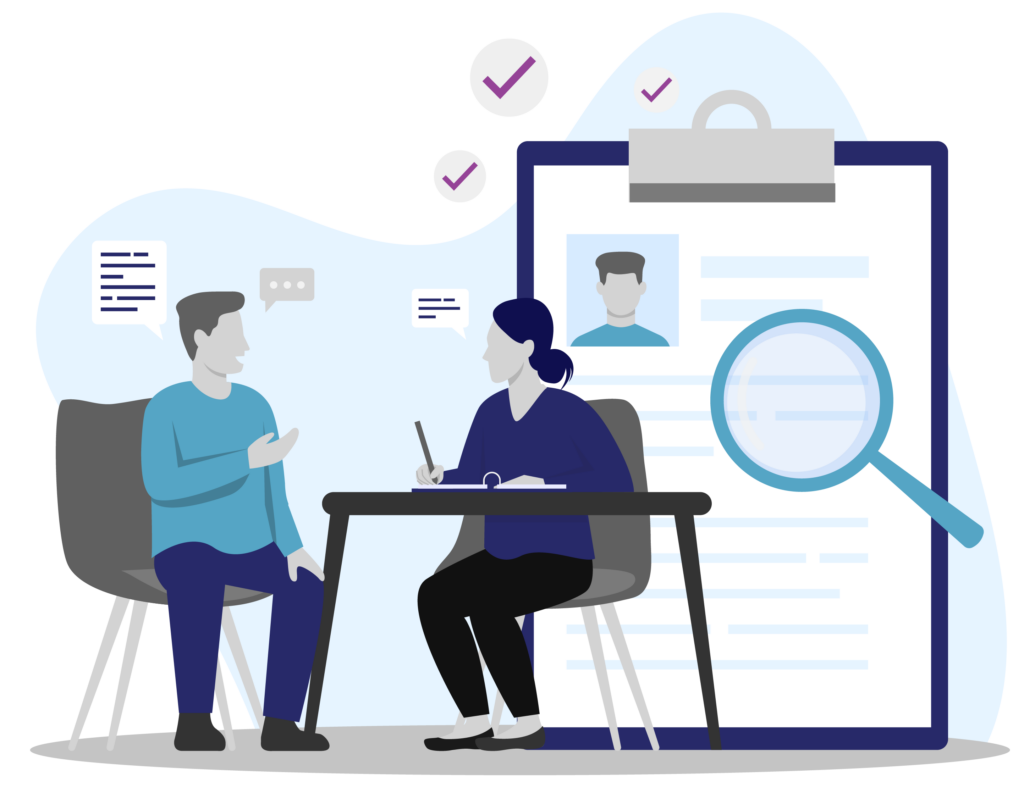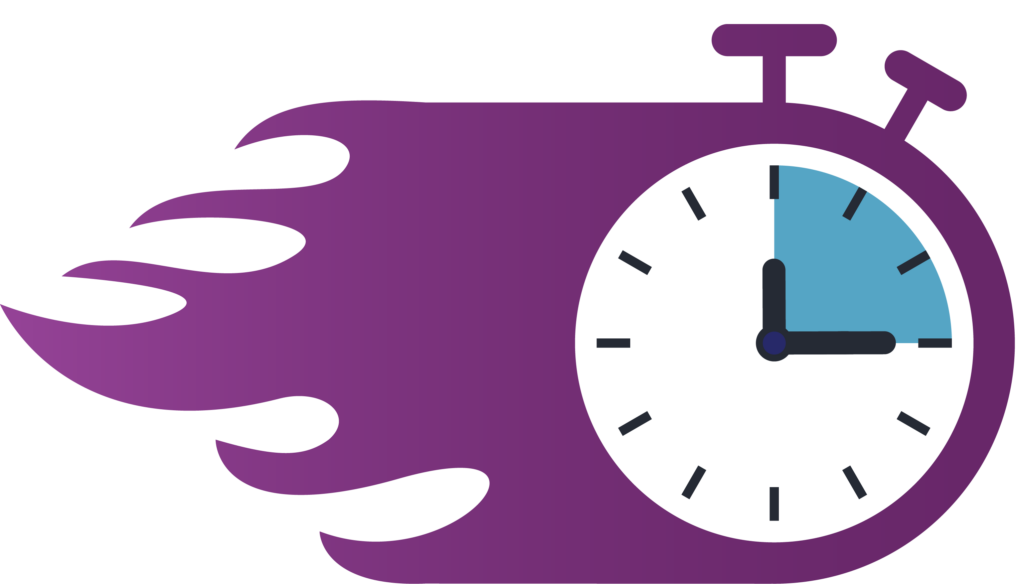A perceived slowing of the job market has led some companies to become disillusioned about the availability of candidates. As a result, they’re adjusting their approach to hiring, often elongating the interview process, missing out on qualified individuals and ultimately being unable to effectively fill their open roles. Candidates who were initially enthusiastic about an opportunity are losing interest, becoming disengaged and often accepting other opportunities.
We frequently emphasize the importance of streamlining the interview process in our discussions with hiring managers – both to better meet their candidates’ expectations and to achieve better hiring outcomes. In this edition of Recruiter Report, we’re exploring the question, "Why does your interview timeline matter?"

Your candidates will receive other offers.
 Strong candidates often speak with multiple companies and are unlikely to wait around if another desirable opportunity arises. Even individuals who were initially passive candidates often start considering their options when they realize there’s a market for their skills or the potential to make more money.
Strong candidates often speak with multiple companies and are unlikely to wait around if another desirable opportunity arises. Even individuals who were initially passive candidates often start considering their options when they realize there’s a market for their skills or the potential to make more money.
There’s a frequent misconception that fewer companies hiring will lead to an influx of eager and available candidates. However, for most positions, there’s still a limited candidate pool – especially for roles that require highly specific skillsets or in-office work. This presents a challenge not just for full-time roles, but also for temporary positions. Specialized subject matter experts and positions driven by seasonality (such as claims adjusters during CAT season or customer service representatives during open enrollment) have a high demand, further limiting available talent.
Today's professionals lose interest.
The best hiring experiences are organized and maintain momentum, ideally spanning two weeks or less from initial contact to offer. In fact, 55% of professionals still expect an interview to be arranged within a week or less of applying for a job and 43% of candidates are abandoning the process if it takes too long to schedule interviews. Professionals want to feel like they’re your top choice and that there’s a mutual level of enthusiasm. Telling them you need to see other candidates or dragging things out will often result in them losing interest.
The interview process is a reflection of what it’s like to work at your company.
 The overall employee experience starts with recruiting and reflects on your team and organization as a whole. Put your best foot forward with consistent communication, a clear process and efficient interviews. Minimize paperwork, avoid unnecessary assessments and tests, and aim for a streamlined experience – both during the interview process, as well as throughout offer negotiations and onboarding. How you use your current and potential team members’ time and energy throughout the hiring process is a strong indicator for how you will operate as their manager.
The overall employee experience starts with recruiting and reflects on your team and organization as a whole. Put your best foot forward with consistent communication, a clear process and efficient interviews. Minimize paperwork, avoid unnecessary assessments and tests, and aim for a streamlined experience – both during the interview process, as well as throughout offer negotiations and onboarding. How you use your current and potential team members’ time and energy throughout the hiring process is a strong indicator for how you will operate as their manager.
Candidates are more likely to accept when the opportunity is top of mind.
The few days immediately following an interview are when candidates are most likely to accept your offer, as the opportunity is still fresh and exciting. As time passes between the interview and the offer, they are less likely to remember specific conversations and what is attracting them to the role and company. Even if they left the interview ready to accept on the spot, their enthusiasm will likely wane as other options are presented.
Unfilled positions affect your existing team.
In addition to the hours spent interviewing candidates and reading resumes, open roles often result in other team members stepping in to fill the gaps. While shifting work around during a vacancy can be expected, it’s not sustainable long term and often leads to burnout among existing employees. Consider the holistic impact of your open role and adjust your expectations and requirements accordingly.
 Here are a few ways to speed up your interview process:
Here are a few ways to speed up your interview process:
- Define your criteria – what skills and traits are non-negotiable and which would be nice to have? Use this information to streamline the initial screening process and align everyone involved.
- Have a back-up plan in place for potential conflicts or PTO, ensuring you’re able to move forward if certain decision-makers are unavailable.
- Be efficient and intentional with scheduling, focusing on who candidates will meet with and why, while also communicating this information to others involved in the process.
- Rather than looking for reasons to disqualify candidates, focus on their potential fit and success within the organization.
- Stop looking for “the perfect candidate.” If you find someone you like and who is qualified, avoid waiting to explore other possibilities. Be prepared to be decisive.
The pace of hiring has a greater impact than many realize. Moving quickly in today’s market better engages top talent, positively influences your employer brand and ultimately improves the likelihood of offer acceptance. For more on this topic, view our recent post on securing top talent. For additional recruiting best practices, check out our Recruiter Report archive.
As a hiring manager, what is your average timeline for making an offer? View our LinkedIn poll to share your thoughts.